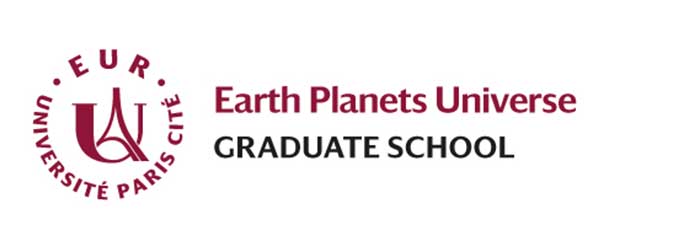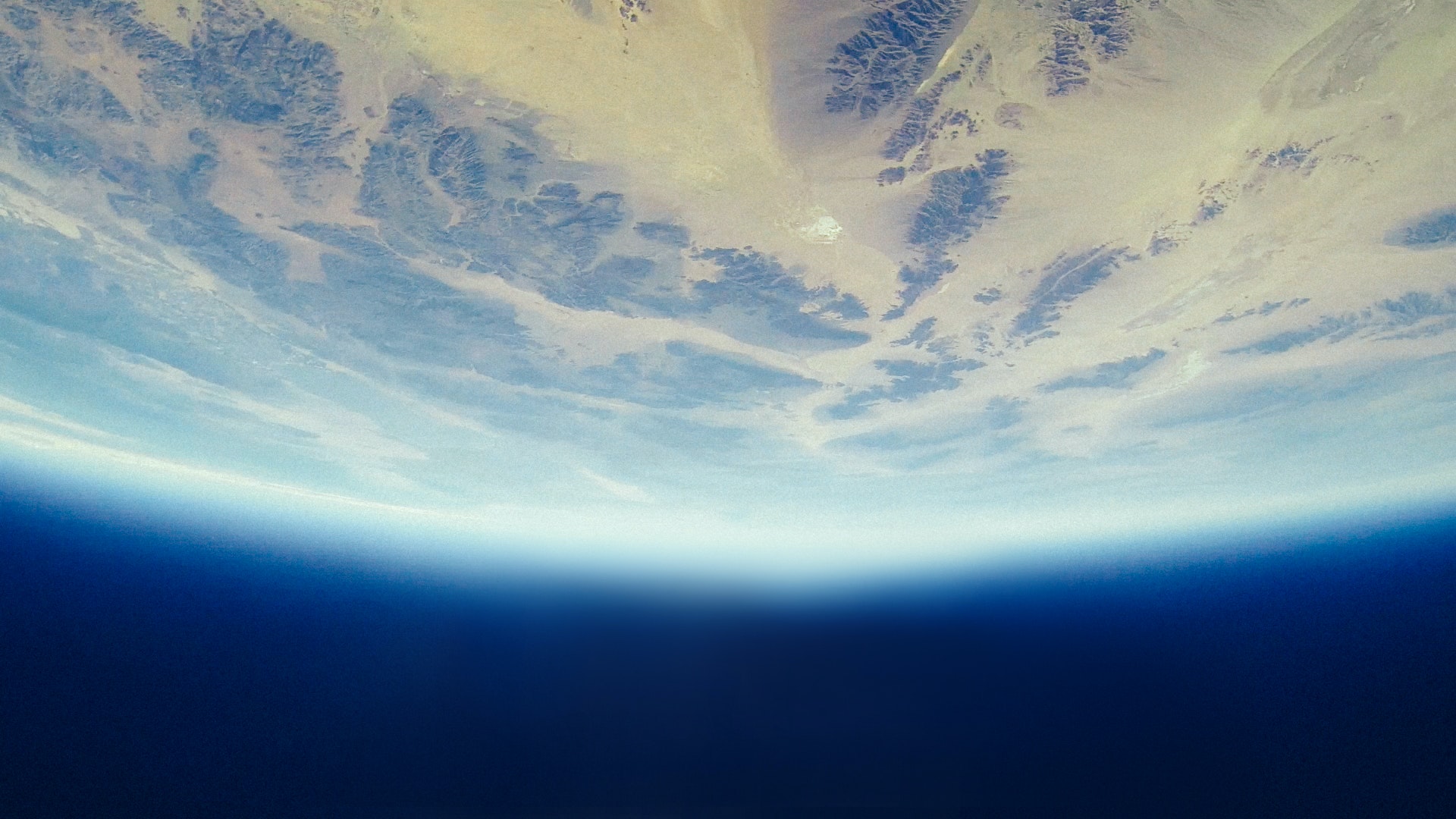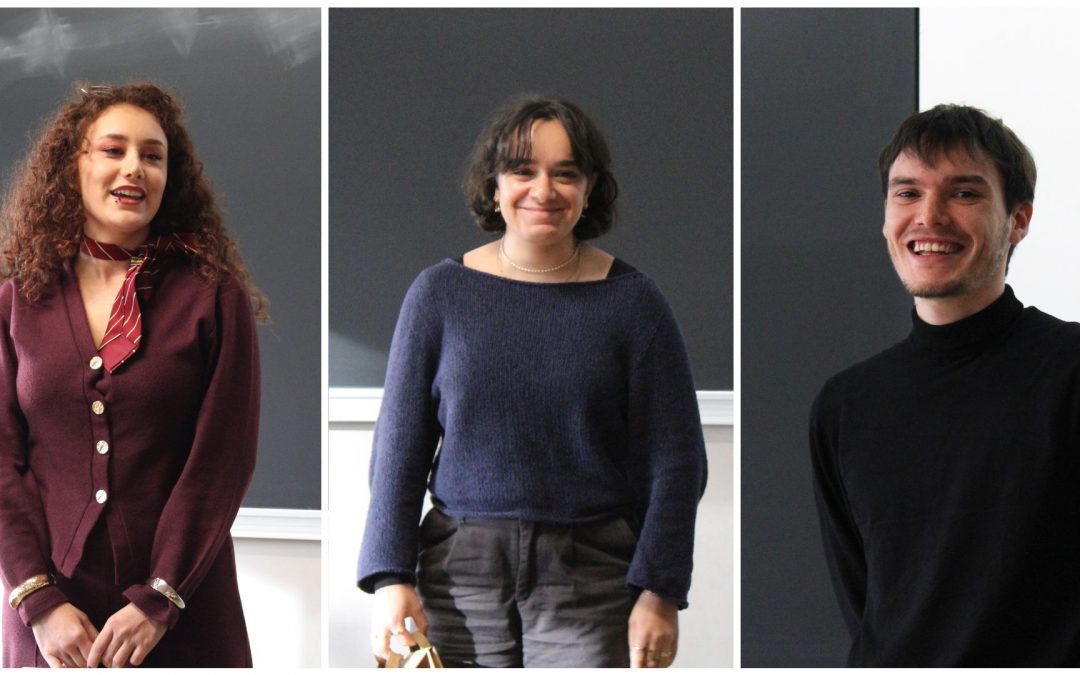Earth Planets Universe
The Graduate School of Earth Planets Universe aims to train professionals in the fields of geosciences and astrophysics, astroparticle and cosmology.
The Graduate School offers several Masters courses and PhD progammes in fundamental and applied physics, risks and environment, and planetary sciences. It brings together 100 researchers and over 400 students from the Institut de Physique du Globe de Paris and the Astroparticle and Cosmology laboratory, all part of the UniversEarth initiative.


Presentation
Experts in various disciplinary fields; from geosciences and astrophysics to space sciences; are gathered in the Graduate School of Earth Planets Universe to share methods and technologies, allowing them pursue common goals and research interests.
The Graduate School of Earth Planets Univers trains students to become leading engineers and scientists in the study of complex natural systems, using physics, chemistry, long-term observations and big data streams.
Our research training focuses on innovation and we aspire to offer students a growing share of “courses without borders”, in partnership with renowned international universities and laboratories. For instance, the Master programme SPACE was created in 2009 in partnership with the university of Science and Technology of Hanoi.
Website
www.univearths.fr
Contact
Contact form
Address
Institut de Physique du Globe de Paris
1, rue Jussieu
75238 Paris cedex 05
Phone
+33 (0)1 83 95 74 34
Masters
This programme is opened to students with a solid background in physics, chemistry, mathematics, computer science or geology and offers cutting edge training in geosciences, combining quantitative and observational analysis methods.
Two specialisation options are available:
The first year of these programmes covers statistical physics, high energy physics, atomic physics, condensed matter physics, astrophysics. The second year (M2) programmes will allow you to specialise in different fields such as astroparticle, astrophysics, cosmology, particle physics and theoretical physics.
List of Masters taught in French and English:
- Fundamental physics and applications:
- Physics Master of the Centre International de physique fondamentale
- Risks and the environment:
Research
Laboratories
Earth, planetary and environmental sciences are gaining considerable momentum in modern society. Today, more than ever, we need to understand and predict the evolution of our planet. Chemistry, physics, geology and mathematics are used to analyze and understand changes in the solar system. They allow us to address challenges in various fields, such as understanding telluric risks, prospecting and managing natural resources, the impact of human activities on biogeochemical cycles, etc.
These questions are studied at the Institut de Physique du Globe de Paris (IPGP, UMR 7154), in charge of the observation services in volcanology, seismology, magnetism, gravimetry and erosion. Involved in the study of the planets in the solar system, the Institute offers powerful means of calculation, massive data processing capacity, and an analytical platform unique in France, along with the cutting edge experimental facilities.
The AstroParticle and Cosmology Laboratory (APC, UMR 7164)is interested in research in the Science of the Universe, in particular cosmology, gravitation, high-energy astrophysics and particle physics. In collaboration with the French space agency (CNES), the APC laboratory plays an important role in the deployment of deep learning techniques, in the analysis of data – on the ground and in space – but also in the design, construction and validation of space tools.
The Astrophysics, Instrumentation and Modeling Laboratory (AIM, UMR 7158) is one of the largest space laboratories in the world. In direct collaboration with the CNES, AIM is heavily involved in the space missions of European Space Agency scientific program on Cosmic Vision.
Doctoral schools
The doctoral school Earth, Environmental Sciences and Physics of the Universe of Paris (STEP’UP, DS 560) covers a vast scientific scope, which ranges from the geosciences and planetology to astrophysics, astroparticle physics and cosmology. Over 50 PhD students graduate each year from the School. Applications to join the PhD programme can be submitted from December to June.
Executives
- Yvonne BECHERINI
Director of the Graduate School of Earth Planets Universe
Board members:
- Marc BENEDETTI
- Vincent BUSIGNY
- Marc CHAUSSIDON
- Matthias GONZALEZ
- Antoine KOUCHNER
- Aurélia OLIVIER-KAISER
À lire aussi

Graduate School Sustainability, Organisations and Institutions Best Thesis Awards: Celebrating Scientific Excellence in Sustainability
The Graduate School Sustainability, Organisations and Institutions held its traditional awards ceremony for the Best Theses of its students. This distinction highlights the scientific excellence of research devoted to sustainable development and sustainability. Meet...

Prix des meilleurs mémoires de la Graduate School Sustainability, Organisations and Institutions : valoriser l’excellence scientifique en soutenabilité
La Graduate school Sustainability, Organisations and Institutions a organisé sa traditionnelle cérémonie de remise de Prix des meilleurs mémoires de ses étudiantes et étudiants. Une distinction valorisant l’excellence scientifique des recherches consacrées au développement durable et à la soutenabilité. Découvrez les trois lauréates et lauréats récompensés pour la qualité de leurs travaux.

8 mars : L’Université Paris Cité engagée pour les droits des femmes
À l’occasion de la Journée internationale des droits des femmes, l’Université Paris Cité réaffirme son engagement en faveur de l’égalité entre les femmes et les hommes, de la santé des femmes et de la lutte contre toutes les formes de violences, de harcèlement et de...

2e édition du forum de la ludopédagogie : rendez-vous le 24 mars
Rendez-vous mardi 24 mars 2026, de 10h à 16h, pour une journée placée sous le signe du jeu, du partage et de l’innovation pédagogique.Une trentaine de stands, animés par des intervenantes et intervenants de l’Université Paris Cité et des partenaires extérieurs,...
